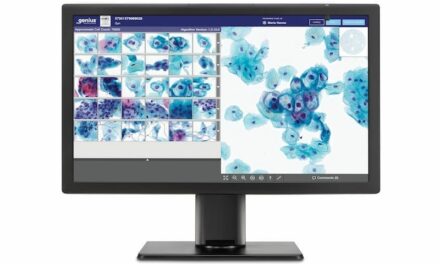Summary: A proof-of-concept study introduces a breath-based diagnostic tool for lower respiratory tract infections, offering a noninvasive alternative to traditional, time-consuming diagnostic methods by detecting elevated neutrophil elastase levels in human breath.
Takeaways:
- The new breath test detects elevated neutrophil elastase activity, a marker of lower respiratory tract infections, with high sensitivity.
- This diagnostic platform could revolutionize infection diagnosis in intubated patients, especially in critical care settings.
- The tool promises a faster, less invasive alternative to bacterial cultures and molecular sequencing methods, reducing diagnosis time.
A proof-of-concept study promises the speedy diagnosis of lower respiratory tract infections through analysis of human breath.
Diagnosing Lower Respiratory Tract Infections
Lower respiratory tract infections, such as bronchitis, pneumonia, and bronchiolitis, are currently diagnosed by culturing bacteria from respiratory specimens, but the procedure is invasive, laborious, and time-intensive.
Molecular sequencing techniques cannot differentiate between clinical infection and mere colonization, in which bacteria are benignly present in the respiratory tract. Researcher Dapeng Chen, PhD, and colleagues have designed a medical device that measures the protease activity of human neutrophil elastase in human breath with high sensitivity. The over-release of neutrophil proteases is an effect caused by lower respiratory tract infections.
Further reading: The New Era of Respiratory Virus Testing
The Breath Test
The authors tested the system on clinical breath samples from intubated patients as well as a group of healthy volunteers. The platform measured elevated levels of human neutrophil elastase in patients diagnosed with confirmed lower respiratory tract infections.
According to the authors, the results suggest that developing a breath-based diagnostic tool for lower respiratory tract infections will be possible, which could be particularly useful in intubated patients within critical care settings.
Featured image: A breath-based noninvasive diagnostic platform for respiratory infections. Photo: Zeteo Tech, Inc.




